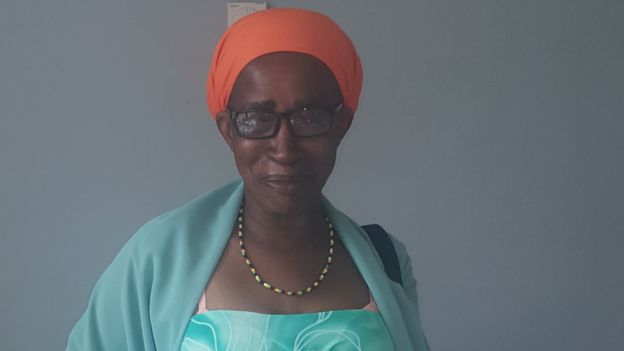
Opelo Kgari
The hunger strike at Yarl’s Wood is now in its second week. In the past week, the Home Office first tried to claim there was no hunger strike, then tried to claim that if there was a hunger strike there was no reason for it, and finally lit upon the great idea of claiming the hunger strike was for dietary and religious reasons. None of these patent lies worked, the hunger strike continues, and the support for it deepens and grows. Meanwhile, on Saturday, Opelo Kgari, one of the spokespersons for the hunger strikers, and her mother, Florence Kgari, were, without notice, dumped into a van, hauled to Heathrow, and told that they were to be dumped onto an 8:15 pm Ethiopian Airlines flight to Addis Ababa. Opelo Kgari and Florence Kgari are originally from Botswana. Thanks to last minute interventions, the two were `spared’ that ordeal … and returned to Yarl’s Wood. Why does the English government hate Opelo Kgari and her mother, Florence Kgari?
Opelo Kgari is 27 years old. She has lived in England since she was 13 years old. She excelled in secondary school, and has an unblemished record of accomplishment. Last May, on her way back from a brief holiday with friends in Belfast, Opelo Kgari was thrown into a holding cell for 12 hours … for no apparent reason. Six weeks ago, Opelo Kgari dutifully reported to the Home Office, as she does every two weeks, and was thrown into a holding cell, again for 12 hours, and then shipped to Yarl’s Wood: “This time round, I wasn’t even wearing a bra. I was going to yoga with a friend after reporting to the Home Office, so I just threw a coat on. I never got to the class. They put me and my mum in a holding cell for over 12 hours, with three officers outside. I didn’t have a bra for five days once I got here, or a change of underwear.” What justifies such inhumane treatment?
Opelo Kgari has been asking that exact question, on her own and as one of the spokespersons for the 120 women on hunger strike in Yarl’s Wood. Opelo Kgari has become the spokesperson partially because her English is so good, but more because she has much to say about the conditions and their impact on the women: “There’s one woman who spends all day walking around the centre with a packed handbag, claiming she had everything she needs in there. She’s clearly not well. And there’s an Iranian woman who’s on suicide watch. Officers just sit outside her cell with the door open. She clearly shouldn’t be in here at all. It’s inhumane.”
It’s inhumane. Hatred is always inhumane. Why does the English government hate Erioth Mwesigwa, Shiromini Satkunarajah, Irene Clennell, Chennan Fei, Kelechi Chioba, Paulette Wilson, Patricia Simeon, Lazia Nabbanja, and this is only a partial list of prominent cases within the last twelve months. Why does the English government hate Opelo Kgari and her mother, Florence Kgari? What is the point of a policy that predictably traumatizes women, of whom the majority are women of color? The Independent has put a focus on Opelo Kgari’s situation, calling it “a terrible case” and, echoing Opelo Kgari, a facet of England’s inhumane immigration system. Today, Independent reporter Charlotte England wrote, “Saturday night was a victory. But we must keep paying attention to what is happening in Yarl’s Wood — where Opelo is still being held against her will and still faces deportation — and other similar facilities, and we must keep putting pressure on politicians to end detention and unlawful, unjust deportations entirely.”
Deportation is preceded by incarceration. For those not deported, incarceration has preceded “community release.” In either case, “incarceration” is a cover for institutional violence against women. Why does the English government hate Opelo Kgari and Florence Kgari?
(Photo Credit: Independent)


